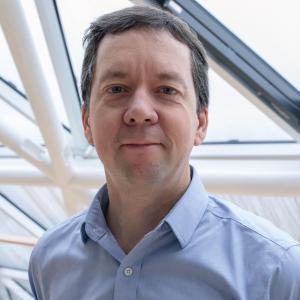Florian Remy intended to look for work in Asia after university, but then he found out about a new Belgium energy biomass project
When Florian Remy finished his university studies, he planned to find a job in renewable energy in Asia, where he had spent six months as an energy efficiency intern in Vietnam. “Then one day I received a call about a new biomass plant, and I don’t regret my choice to stay in the area,” says Florian, who lives in Brussels and works at Xylowatt in Mont-Godinne, near Namur.
Xylowatt operates a biomass plant that supplies renewable energy to the hospital in Mont-Godinne. The hospital is part of the Catholic University of Louvain, the largest French-speaking university in Belgium. Xylowatt supplies 50% of the hospital’s electricity by using a cutting-edge “gasifier” to create energy from burning woodchips, sawdust, tree branches, damaged pallets and wood packaging.
Florian, 27, attended university in France and Sweden to study mechanical engineering, with a specialisation in renewable energy and energy efficiency, before starting his current job in February 2018. He is a project manager at Xylowatt for the boiler system and the “absorption chiller,” which removes heat from water and keeps the hospital cooler in the summer.
The Xylowatt plant was built with financing from a programme called Private Finance for Energy Efficiency that’s run by the European Investment Bank and the European Commission. In 2016, the Bank signed a €75 million loan with Belfius Banque for energy projects, allowing Belfius to provide financing to small and medium-sized companies in electricity, gas, steam and air-conditioning efficiency. Xylowatt says the new plant next to the university hospital cuts carbon emissions by more than 3,000 tonnes a year, equal to the pollution from 3,000 cars. Florian’s job is one of millions created with the European Investment Bank’s support. By 2021, investments signed by the Bank in 2017 alone are expected to raise EU gross domestic product by 1.1% and to create 1.2 million jobs. Even in 2036, EU GDP will be 0.7% higher as a result of the EIB's 2017 investments, and 650 000 extra jobs will have been added.
New technologies require a lot of faith
“It is important that banks like the European Investment Bank support the development of new technologies such as gasification units,” Florian says. “These technologies take a long time to develop and require a substantial investment before they reach their maturity.”
As a plus, the investment supports a better future for the planet.
“Wood gasification is a carbon-neutral technology, as long as wood resources are not overexploited,” Florian says. “It is a way to reduce our reliance on fossil fuels.”
